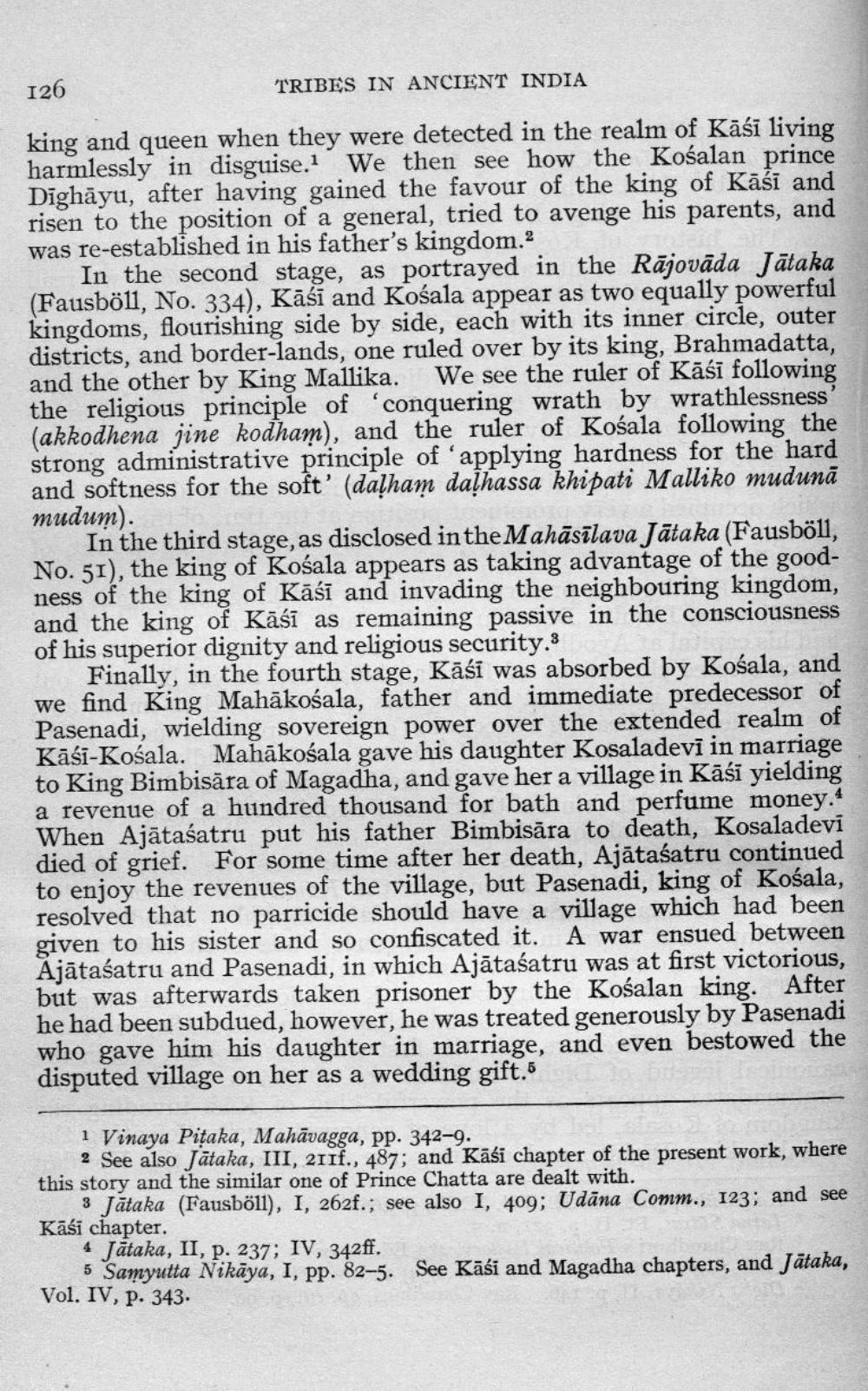________________
126
TRIBES IN ANCIENT INDIA
king and queen when they were detected in the realm of Kāśi living harmlessly in disguise. We then see how the Kośalan prince Dīghāyu, after having gained the favour of the king of Kāšī and risen to the position of a general, tried to avenge his parents, and was re-established in his father's kingdom.2
In the second stage, as portrayed in the Rājovāda Jātaka (Fausböll, No. 334), Kāśi and Kośala appear as two equally powerful kingdoms, flourishing side by side, each with its inner circle, outer districts, and border-lands, one ruled over by its king, Brahmadatta, and the other by King Mallika. We see the ruler of Kāśī following the religious principle of 'conquering wrath by wrathlessness' (akkodhena jine kodham), and the ruler of Kośala following the strong administrative principle of 'applying hardness for the hard and softness for the soft' (daļham dalhassa khipati Malliko mudunā mudum).
In the third stage, as disclosed in the Mahāsīlava Jātaka (Fausböll, No. 51), the king of Kośala appears as taking advantage of the goodness of the king of Kāśī and invading the neighbouring kingdom, and the king of Kāśī as remaining passive in the consciousness of his superior dignity and religious security.3
Finally, in the fourth stage, Kāśi was absorbed by Kośala, and we find King Mahākośala, father and immediate predecessor of Pasenadi, wielding sovereign power over the extended realm of Kāśi-Košala. Mahākośala gave his daughter Kosaladevi in marriage to King Bimbisāra of Magadha, and gave her a village in Kāśi yielding a revenue of a hundred thousand for bath and perfume money.4 When Ajātaśatru put his father Bimbisāra to death, Kosaladevi died of grief. For some time after her death, Ajātasatru continued to enjoy the revenues of the village, but Pasenadi, king of Kośala, resolved that no parricide should have a village which had been given to his sister and so confiscated it. A war ensued between Ajātaśatru and Pasenadi, in which Ajātaśatru was at first victorious, but was afterwards taken prisoner by the Kośalan king. After he had been subdued, however, he was treated generously by Pasenadi who gave him his daughter in marriage, and even bestowed the disputed village on her as a wedding gift.5
1 Vinaya Pițaka, Mahāvagga, pp. 342-9.
2 See also Jātaka, III, 211f., 487; and Kāśi chapter of the present work, where this story and the similar one of Prince Chatta are dealt with.
3 Jātaka (Fausböll), I, 262f.; see also I, 409; Udāna Comm., 123; and see Kāśi chapter.
4 Jataba, II, p. 237; IV, 342ff.
5 Samyutta Nikāya, I, pp. 82-5. See Kāśi and Magadha chapters, and Jātaka, Vol. IV, p. 343.




